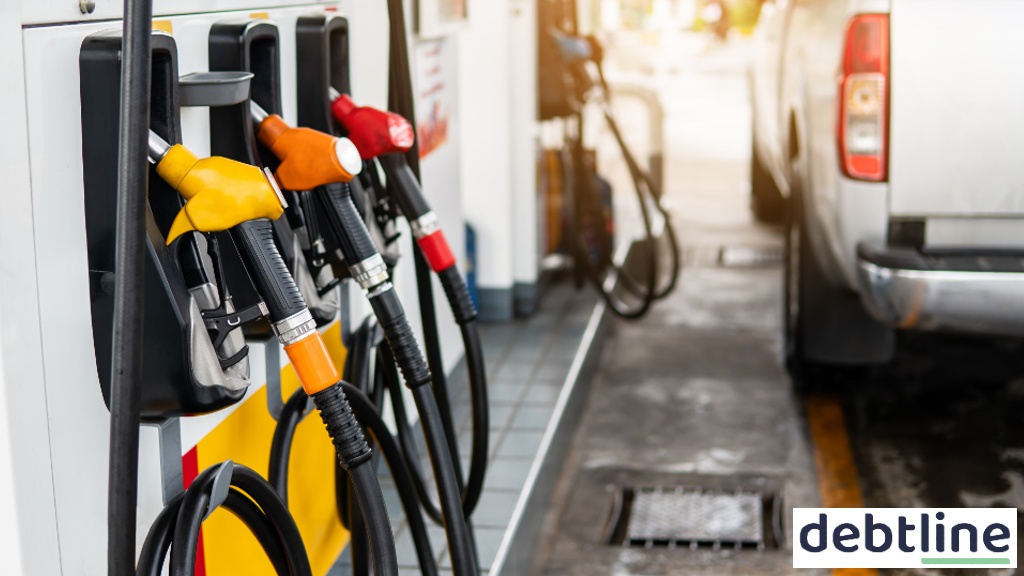South Africans Beware: A Petrol Price Hike is Coming

With the myriad of financial challenges South Africans are up against in 2024, a drop in the petrol price would certainly come as a saving grace. The fuel cost has been a noteworthy contributor to inflation over the past two years, impacting the wallets of motorists and consumers alike.
There are countless financial challenges that South Africans are up against in 2024, a steep rise in the petrol price is the last thing they need. Despite the recent promising news by economists at PwC predicting a positive shift in fuel prices at the start of the year, there’s bad news on the horizon; the Central Energy Fund (CEF) indicates a soar.
How can South Africans prepare themselves for the impact of another fuel price hike?
Read more: Top 4 Bad Money Habits To Break
This article will explore the factors driving the negative change and project the expected shifts. As consumers brace themselves for the negative projected alterations in South Africa’s petrol prices, we offer solace and valuable insights on navigating the impact of unexpected bad news on your finances.
Petrol Price Outlook for 2024
According to PwC’s latest economic outlook, petrol and diesel prices have seen substantial increases of 22% and 41% over the last two years. Despite the data indicating that these hikes would likely ease in 2024, the CEF’s predictions indicate otherwise. Conflict abroad, the rand’s poor performance, and international oil prices are not stabilising.
Factors Driving the Change:
- Fluctuations in international petroleum products
- The latest conflict in Israel and Palestine
- Houthi attacks ships in the Red Sea
- Poor performance of the South African rand
- The anticipated increase in global oil prices
These factors make it clear that the anticipated price hike is an intricate dance between international market dynamics, conflict in the Middle East, and local currency performance. “The fuel has to be diverted and go around Africa, basically,” CEO of the Fuel Retailers Association, Reggie Sibiya, said.
Although PwC’s economic modelling suggests a slow depreciation in the rand from around R18.30/$ to approximately R18.95/$ by the end of 2024, the rand may perform even worse.
Read more: End Your Toxic Relationship With Bad Budgeting
Despite financial markets foreseeing a gradual decline in Brent oil prices from $81.80/bbl to $79.50/bbl over the same period, financial analysts are no longer confident. These parallel trends create an unfavourable environment for stabilisation in fuel prices, especially combined with global unrest.
Projected Adverse Impact on Petrol Prices
Looking ahead, PwC initially suggested that the average cost of petrol and diesel should be lower in the first three months of 2024 compared to the previous quarter of 2023. As we examine the projections from the CEF, however, an upward trend for the remaining quarters of 2024 and into 2025 is unlikely; there’s no positive outlook for the start of the year.
Projected changes:
- Petrol: Estimated to cost an average of 0.7% more in 2024 at R23.74/litre compared to R23.10/litre in 2023.
- Diesel: Projected to cost 0.4% more on average at R21.80/litre compared to R21.54/litre in 2023.
The upward trend in petrol and diesel prices reflects the negative trajectory in the rand, global fuel increases, and the impact of conflict abroad.
Read more: More South African Households Are Turning to Credit Cards
Notably, this follows significant declines in both product prices during November and December 2023, marking a positive turn for consumers. Despite these positive shifts, PwC did raise a red flag, noting that petrol and diesel prices have doubled over the past seven years, signalling an unsustainable rate for fuel users in the country.
Month-end data from the CEF indicates a massive hike in February 2024 fuel prices. The expected changes for February are alarming, and alongside other financial challenges, 2024 predicts hardship for all South Africans.
Navigating Debt Amidst Negative Changes
While the bad news in petrol prices brings distress, South Africans must consider the broader financial landscape. Managing debt is a crucial aspect of financial well-being, especially amid economic uncertainties.
Read more: Budget Tips for Surviving South Africa’s Rising Living Costs
Debtline, a reputable national debt counsellor, offers invaluable services such as debt review, counselling, and consolidation. These structured plans empower individuals to manage and reduce debt burdens, aligning their financial goals with the changing economic landscape.
Debtline is Here To Help
Strategic financial planning becomes crucial as South Africans brace themselves for the expected increase in fuel prices. Whether navigating the impact of the expected hike in February or seeking assistance in managing debt, Debtline stands ready to help. Their personalised approach addresses individual financial needs, providing a pathway toward financial freedom.
For a free callback and guidance on managing debt, complete our online form and embark on a journey to financial resilience in the face of economic challenges and uncertainties.